
United Nations Security Council resolution 940, adopted on 31 July 1994, after recalling resolutions 841 (1993), 861 (1993), 862 (1993), 867 (1993), 873 (1993), 875 (1993), 905 (1994), 917 (1994) and 933 (1994), the Council permitted a United States-led force to restore President Jean-Bertrand Aristide and authorities of the Government of Haiti, and extended the mandate of the United Nations Mission in Haiti (UNMIH) for an additional six months.
The United Nations Mission in Haiti (UNMIH) was a peacekeeping operation carried out by the United Nations between September 1993 and June 1996. The Mission was reestablished (MINUSTAH) in April 2004, after a rebellion took over most of Haiti and President Bertrand Aristide resigned. This mandate ended in 2017, replaced by United Nations Mission for Justice Support in Haiti (MINUJUSTH), which saw the end of UN peacekeepers in Haiti after its ending in 2019.

Pakistan has served in 46 United Nations peacekeeping missions in 29 countries around the world. As of 2023, United Nations (UN) statistics show that 168 Pakistani UN peacekeepers have been killed since 1948. The biggest Pakistani loss occurred on 5 June 1993 in Mogadishu. Pakistan joined the United Nations on 30 September 1947, despite opposition from Afghanistan because of the Durand Line issue. The Pakistan Armed Forces are the fifth largest contributor of troops towards UN peacekeeping efforts, behind India and Rwanda.
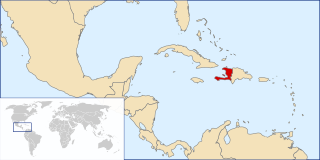
United Nations Security Council Resolution 841, adopted unanimously on 16 June 1993, after recognising the need for an urgent settlement to the situation in Haiti and the efforts of the Secretary-General of the United Nations Boutros Boutros-Ghali and the Secretary General of the Organization of American States João Clemente Baena Soares, the Council placed various international sanctions on Haiti.
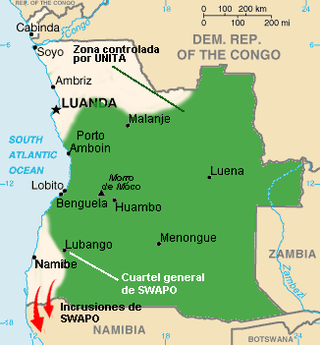
United Nations Security Council resolution 851, adopted unanimously on 15 July 1993, after reaffirming resolutions 696 (1991), 747 (1992), 785 (1992), 793 (1992), 804 (1993), 811 (1993), 823 (1993) and 834 (1993), the Council noted the continuing deterioration of the situation in Angola and extended the mandate of the United Nations Angola Verification Mission II until 15 September 1993, discussing further the peace process in the country.

United Nations Security Council resolution 862, adopted unanimously on 31 August 1993, after recalling resolutions 841 (1993), 861 (1993) and an agreement between the President of Haiti and the Commander-in-Chief of the Armed Forces of Haiti, the Council reaffirmed the international community's commitment to a solution in Haiti and discussed the establishment of a new police force in Haiti under a proposed United Nations Mission in Haiti (UNMIH).

United Nations Security Council resolution 873, adopted unanimously on 13 October 1993, after recalling resolutions 841 (1993), 861 (1993), 862 (1993) and 867 (1993), the council noted the continued obstruction of the arrival of the United Nations Mission in Haiti (UNMIH) and the failure of the Armed Forces of Haiti to carry out their responsibilities and therefore reimposed international sanctions against Haiti that were previously suspended.

United Nations Security Council resolution 892, adopted unanimously on 22 December 1993, after reaffirming resolutions 849 (1993), 854 (1993), 858 (1993), 876 (1993) and 881 (1993) on the Georgian–Abkhazian war and Resolution 868 (1993) concerning the safety of United Nations peacekeepers, the council discussed the phased deployment of 50 military observers in Georgia.

United Nations Security Council resolution 905, adopted unanimously on 23 March 1994, after recalling resolutions 841 (1993), 861 (1993), 862 (1993), 867 (1993), 873 (1993) and 875 (1993), on the situation in Haiti, the council extended the mandate of the United Nations Mission in Haiti (UNMIH) until 30 June 1994.

United Nations Security Council resolution 917, adopted unanimously on 6 May 1994, after recalling resolutions 841 (1993), 861 (1993), 862 (1993), 867 (1993), 873 (1993) and 875 (1993) and 905 (1994) on the situation in Haiti, the Council imposed further international sanctions on the country after the military authorities refused to implement the Governors Island Agreement to hand over power and instances of violations of human rights.

United Nations Security Council resolution 922, adopted unanimously on 31 May 1994, after reaffirming Resolution 696 (1991) and all subsequent resolutions on Angola, the council discussed the peace process during the civil war and extended the mandate of the United Nations Angola Verification Mission II until 30 June 1994.

United Nations Security Council resolution 933, adopted unanimously on 30 June 1994, after recalling resolutions 841 (1993), 861 (1993), 862 (1993), 867 (1993), 873 (1993), 875 (1993), 905 (1994) and 917 (1994), the Council noted the deteriorating situation in Haiti and extended the mandate of the United Nations Mission in Haiti (UNMIH) until 31 July 1994.
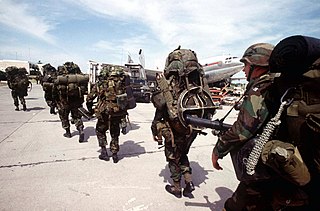
United Nations Security Council Resolution 944, adopted on 29 September 1994, after recalling resolutions 841 (1993), 861 (1993), 862 (1993), 867 (1993), 873 (1993), 875 (1993), 905 (1994), 917 (1994), 933 (1994) and 940 (1994), the Council affirmed its willingness to suspend sanctions against Haiti once the legitimate President Jean-Bertrand Aristide had returned following the removal of the military junta.

United Nations Security Council resolution 948, adopted on 15 October 1994, after recalling resolutions 841 (1993), 861 (1993), 862 (1993), 867 (1993), 873 (1993), 875 (1993), 905 (1994), 917 (1994), 933 (1994), 940 (1994) and 944 (1994), the Council welcomed the return of the legitimate President of Haiti Jean-Bertrand Aristide and lifted sanctions imposed on the country.
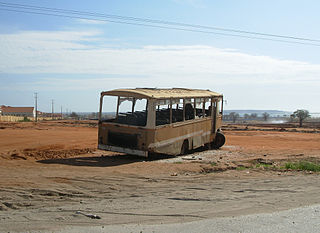
United Nations Security Council resolution 952, adopted unanimously on 27 October 1994, after reaffirming Resolution 696 (1991) and all subsequent resolutions on Angola, the Council discussed the implementation of a ceasefire in the country and extended the mandate of the United Nations Angola Verification Mission II until 8 December 1994.

United Nations Security Council resolution 961 was adopted unanimously on 23 November 1994, after recalling resolutions 637 (1989), 693 (1991), 714 (1991), 729 (1992), 784 (1992), 791 (1992), 832 (1993), 888 (1993) and 920 (1994), the council discussed the implementation of peace agreements in El Salvador and extended the mandate of the United Nations Observer Mission in El Salvador (ONUSAL) for a final time until 30 April 1995.

United Nations Security Council resolution 964, adopted on 29 November 1994, after recalling resolutions 841 (1993), 861 (1993), 862 (1993), 867 (1993), 873 (1993), 875 (1993), 905 (1994), 917 (1994), 933 (1994), 940 (1994), 944 (1994) and 948 (1994), the council noted the progress in Haiti and strengthened the advance team of the United Nations Mission in Haiti (UNMIH).

United Nations Security Council resolution 975, adopted on 30 January 1995, after recalling resolutions 841 (1993), 861 (1993), 862 (1993), 867 (1993), 873 (1993), 875 (1993), 905 (1994), 917 (1994), 933 (1994), 940 (1994), 944 (1994), 948 (1994) and 964 (1994), the Council discussed the transfer of responsibility from the Multinational Force (MNF) to the United Nations Mission in Haiti (UNMIH) and extended the mandate of UNMIH for a further six months until 31 July 1995.
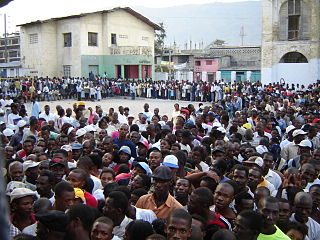
United Nations Security Council resolution 1007, adopted unanimously on 31 July 1995, after recalling resolutions 841 (1993), 861 (1993), 862 (1993), 867 (1993), 873 (1993), 875 (1993), 905 (1994), 917 (1994), 933 (1994), 940 (1994), 944 (1994), 948 (1994), 964 (1994) and 975 (1995), the Council discussed the election process and extended the mandate of the United Nations Mission in Haiti (UNMIH) for a further seven months.
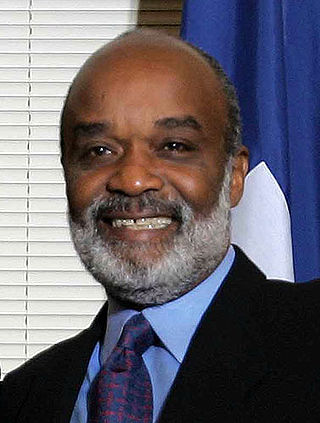
United Nations Security Council resolution 1048, adopted unanimously on 29 February 1996, after recalling resolutions 841 (1993), 861 (1993), 862 (1993), 867 (1993), 873 (1993), 875 (1993), 905 (1994), 917 (1994), 933 (1994), 940 (1994), 944 (1994), 948 (1994), 964 (1994), 975 (1995) and 1007 (1995) on Haiti, the Council extended the mandate of the United Nations Mission in Haiti (UNMIH) for four months until 30 June 1996, and reduced its size.
















